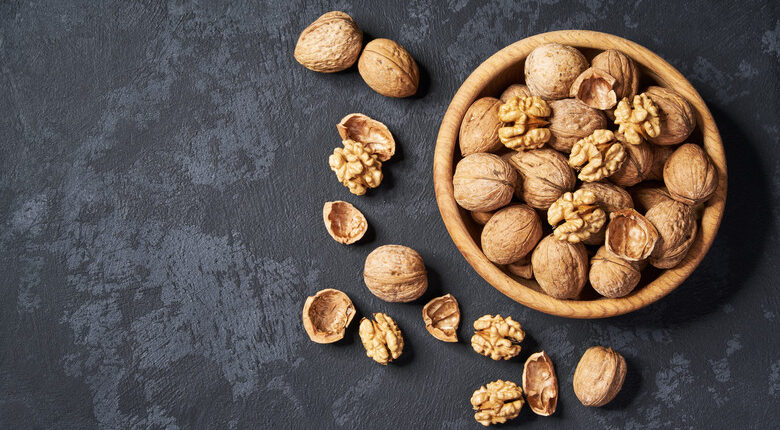Walnuts are high in polyunsaturated fats, which are more beneficial to your health than saturated fats. They are also high in omega-3 fatty acids.
According to research, eating walnuts can help lower LDL (“bad”) cholesterol in particular, as well as overall cholesterol. Although cholesterol can cause plaque to form inside your arteries, eating walnuts can help keep your artery walls healthy.
Walnuts have also been shown to reduce the type of inflammation that leads to heart disease, and they may help reduce your chances of developing a blood clot that causes a heart attack. 5 things walnuts can do for you are listed below.
1. Walnuts may help to reduce the risk of type 2 diabetes
The results of a study that included over 34,000 individuals suggested that those who eat walnuts could have about half the risk of type 2 diabetes in comparison to individuals who don’t consume nuts.
According to the study, the average consumption among walnut eaters was about 1.5 tbsps daily. Doubling the consumption of walnuts 3 tbsps was linked to a 47% reduction in the prevalence of type 2 diabetes. This quantity of walnut consumption is close to the recommended walnut serving size, which is 1 ounce or 4 tbsps. The effect of increasing the consumption of walnuts beyond doubled consumption was not evaluated.
People with diabetes often have higher blood pressure, triglycerides, or cholesterol, which could raise heart disease and stroke risk. Earlier research has examined the connection between the consumption of walnuts and cardiovascular health in addition to diabetes.
Of the many properties in walnuts that could provide health benefits, they are a rich source of recommended polyunsaturated fat, including the plant-based omega-3 fatty acid alpha-linolenic acid.
2.Walnuts may help to reduce the risk of depression
A study has suggested that the consumption of walnuts could be linked to a lower prevalence and frequency of symptoms of depression. After assessing the participants of the study for depression, it was found that depression scores were 26% less for consumers of walnuts and 8% less for consumers of other nuts, in comparison to individuals who didn’t eat nuts at all.
According to study results, consumers of walnuts were more likely to have higher energy levels, have a greater interest in activities, greater optimism better concentration, and less hopelessness.
Although the association between consumption of nuts and depression scores was consistent for women and men, the effect seemed to be strongest in women, who are more likely to report greater symptoms of depression and antidepressant use when compared to men.
3. Walnuts may help to reduce blood pressure
According to a study, consuming walnuts in combination with a diet low in saturated fats could help reduce blood pressure in individuals with a risk of cardiovascular disease. The effects of substituting some of the saturated fats in the diets of study participants with walnuts were investigated in a randomized, controlled trial. It was discovered that individuals had reduced central blood pressure when they consumed whole walnuts every day combined with reduced overall quantities of saturated fat.
Central pressure is the pressure that’s exerted on organs such as the heart, which is just like measuring blood pressure in the arm the standard way and provides information regarding an individual’s cardiovascular disease risk.
Individuals experienced greater benefits when consuming whole walnuts compared to consuming a diet that had a comparable fatty acid profile to walnuts without actually consuming the nut itself. Walnuts contain a plant-based omega-3 known as alpha-linolenic acid (ALA), which could have a positive impact on blood pressure.
4. Walnuts may help protect against ulcerative colitis
According to a study, consumption of walnuts may protect against ulcerative colitis. Walnuts have been shown to provide many health benefits because of their complex variety of phytochemicals and natural compounds. The results from a mice study discovered that consumption of walnuts may also help to protect against ulcerative colitis.
Ulcerative colitis is a kind of inflammatory bowel disease that manifests as chronic inflammation of the gastrointestinal tract.
5. Walnuts may help to reduce levels of bad LDL cholesterol
Research has found that walnut consumption helps to reduce levels of “bad” low-density lipoprotein (LDL) cholesterol, as well as reduce the number of small LDL particles and total LDL particles.
Other research has found that nuts, and walnuts especially, are generally linked to reduced rates of stroke and heart disease. This is because they reduce levels of LDL cholesterol, and this study reveals one more reason: LDL particle quality is improved.
READ NEXT: 5 Best Herbs To Help With Pain Relief









